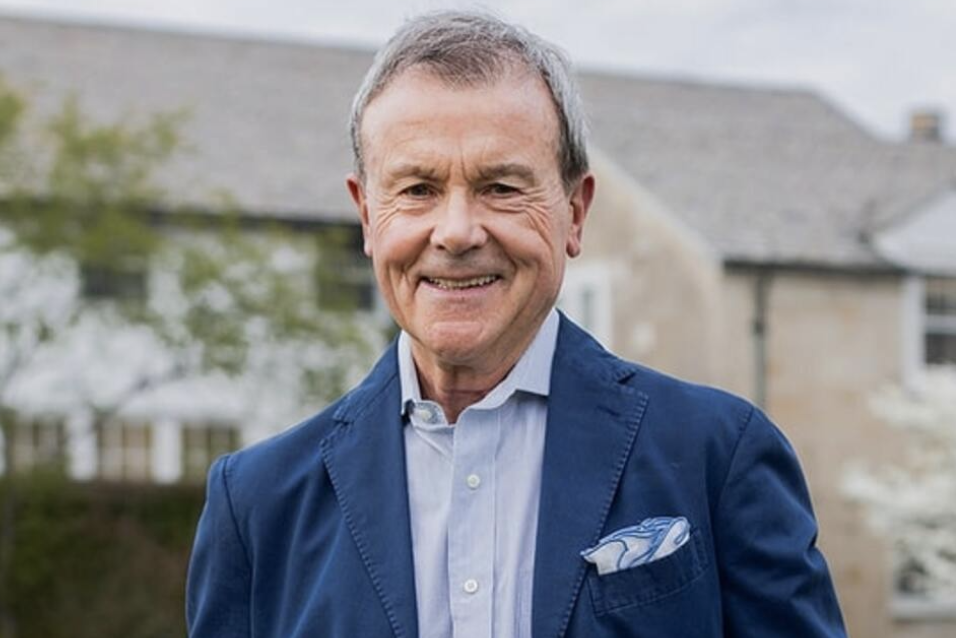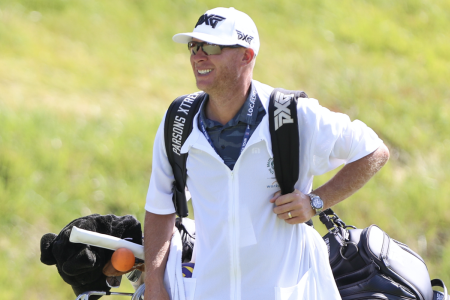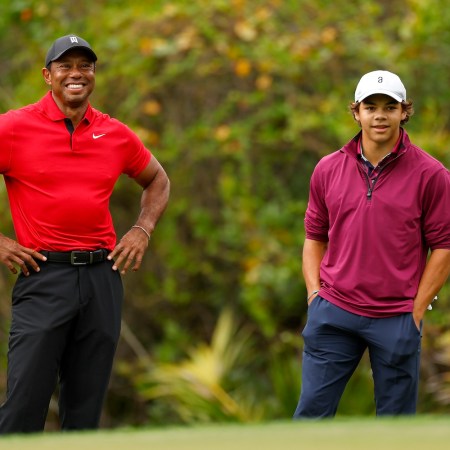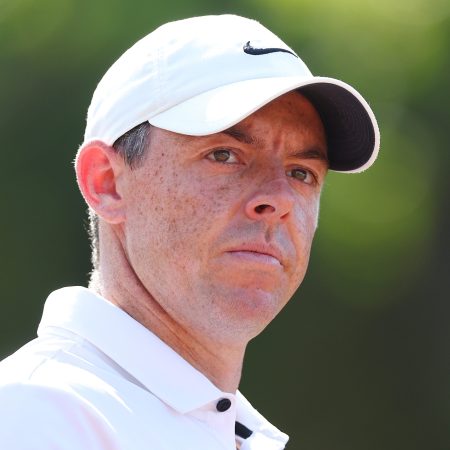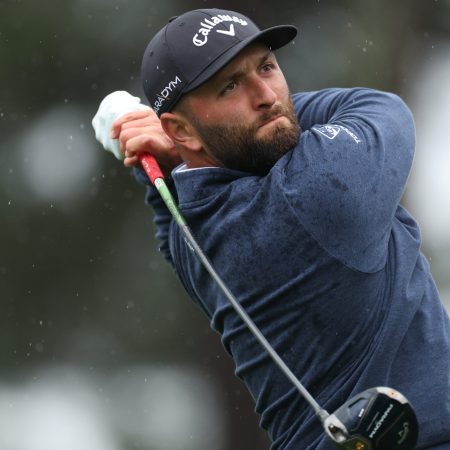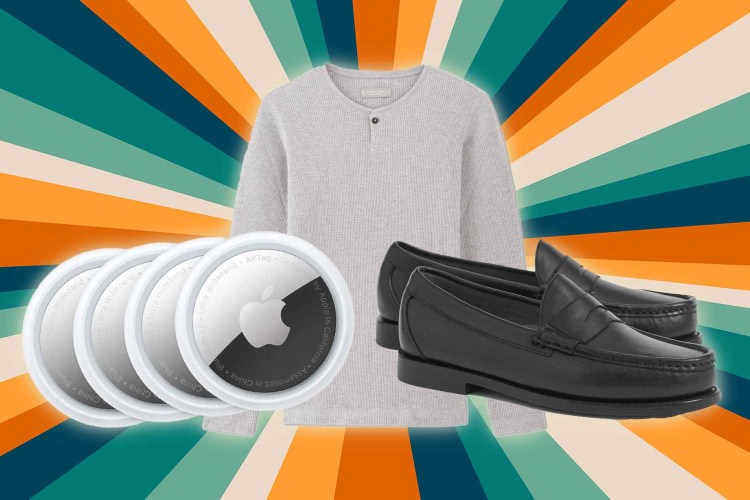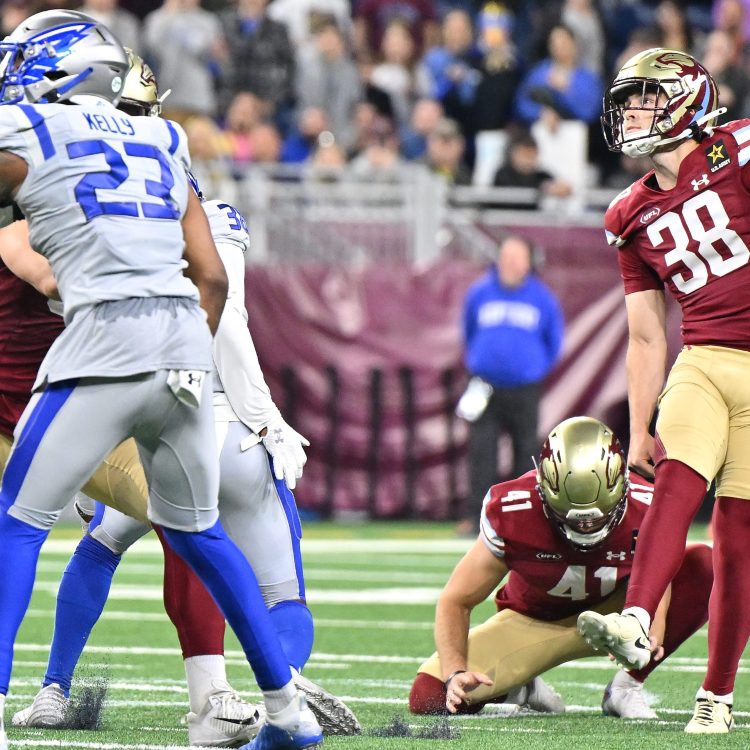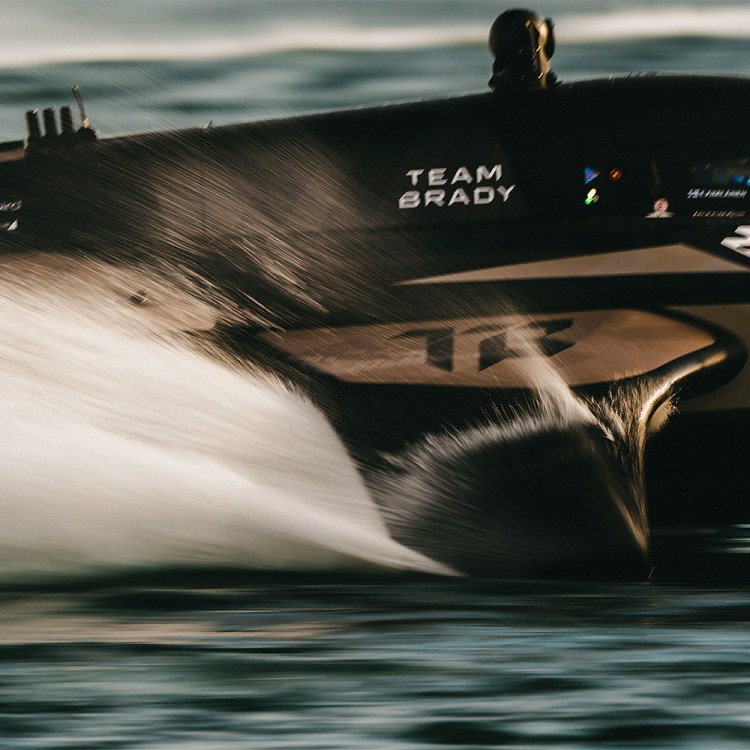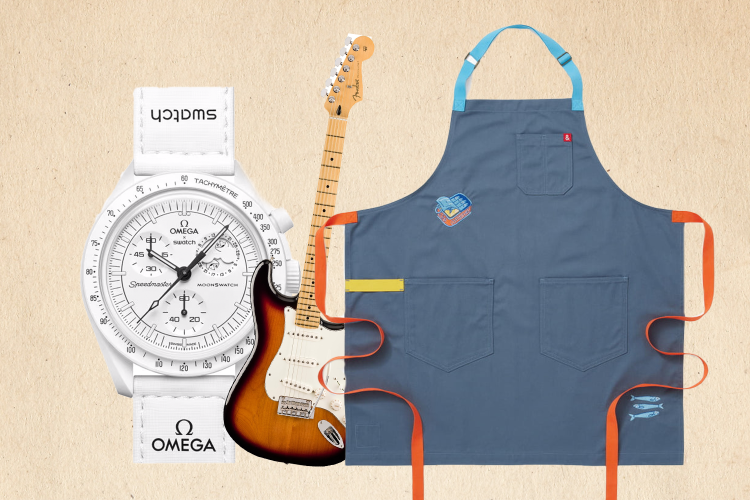Before LIV Golf CEO Greg Norman was a PGA Tour pariah and Tiger Woods was a shadow of the all-time golf phenom who won 15 majors, Hughes Norton worked for International Management Golf (IMG) and was the agent for both of them. In fact, when the 21-year-old Woods notched his first major win and green jacket at the Masters in 1997 by a ridiculous 12 strokes, the people he embraced first were his mother, his father and Norton.
Now, just ahead of the 2024 Masters, things are much, much different for Norton — who was twice named one of the “Most Powerful 36 People in Golf” by Golf Digest — as well as for Norman and Woods. Both men may find themselves in Augusta from April 11-14, the latter to play (Woods is registered in the field for the major he has won five times) and the former to watch LIV golfers including Jon Rahm, Brooks Koepka, Dustin Johnson and Cameron Smith do their Saudi-backed circuit proud by adding to their list of majors wins.
An alum of Harvard Business School who laid the framework for Woods becoming a billionaire by landing him a $40 million deal with Nike to go along with a $20 million deal with Titleist at the start of his pro career but parted ways with his client and IMG soon thereafter, Norton will also be watching the Masters as well as promoting his new book. Co-written with former Golf magazine editor George Peper, Rainmaker: Superagent Hughes Norton and the Money-Grab Explosion of Golf from Tiger to LIV and Beyond is Norton’s attempt to take readers behind the curtain of the high-stakes world of sports management as pro golf was growing into the global game it is today on the backs of players like Woods and Norman.
With Rainmaker now available everywhere from Simon & Schuster, we spoke with Norton, 75, about his book, his two most famous clients and the current state of the game that turned them both into superstars.
InsideHook: It’s been a quarter of a century since you worked for Woods and IMG. Why write the book now?
Hughes Norton: I’m not getting any younger and it just seemed like the right time. It’s 50 years exactly since I went to work for IMG and become a golf agent. It’s 25 years since Tiger fired me as his agent and then Mark McCormick fired me from IMG. It was very cathartic for me to get it out, especially the ending. I’d had great success and then great disappointment over being fired by one of the great golfers of all time after doing a great job for him. Then I was fired from the only job I’d ever had after nearly 30 years. There was really never a resolution for me to that. I’m not saying the book was redemption, but it was good and I got really energized doing it. Now that the work is all behind me, I’m really glad to have it done.
Golf’s Most Colorful Caddie Weighs in on the PGA Tour Merging With LIV
Geno Bonnalie is prepping to carry Joel Dahmen’s bag at the U.S. Open in L.A.IH: After getting fired, did you want to get back into sports management?
HN: When I left IMG, Mark maybe felt sorry for what he what he was doing and gave me a 10-year payout severance deal. I’d invested and saved over the years before that, so I was in pretty good shape financially. And with that bitter taste in my mouth from the end, the last thing I wanted to ever do again was be a golf agent or agent in general. I also was prohibited from doing so for 10 years and I couldn’t write or talk about my years at IMG. I was handcuffed. By the time those restrictions were off and they’d finished paying me, I’d gotten into other things and really didn’t want to go back to any of that. I just became an aging guy who lived in Cleveland and went around the country seeing friends until I did a podcast and George Pepper called me.
IH: What’s the biggest difference between pro golf when you were an agent and the game today?
HN: I was blessed or smart enough, or a combo of both, to represent the two most dominant golfers, if you will, in the last four decades: Greg Norman and Tiger Woods. They were stars, you’re right. People try to figure out what makes a star. First and foremost, you have to have talent, preferably world-beating talent. You also have to have charisma, marketability and pizzazz. You’ve got to have “it.” Look at Rory McIlroy for 10 minutes and he’s got “it,” however you define it. There aren’t enough players with ‘it” anymore. It’s nobody’s fault because you can’t manufacture that. You need those stars to come along. Compared to now, the sport was so blessed. You had Arnold Palmer, Gary Player, Jack Nicklaus, Lee Trevino, Johnny Miller, Tom Watson…That’s a handful of names I just rattled off. I challenge you to give me three right now. LIV Golf is not helping the situation. I fear for the game right now. The PGA Tour has world-beaters, because you have to be. But there are no names.
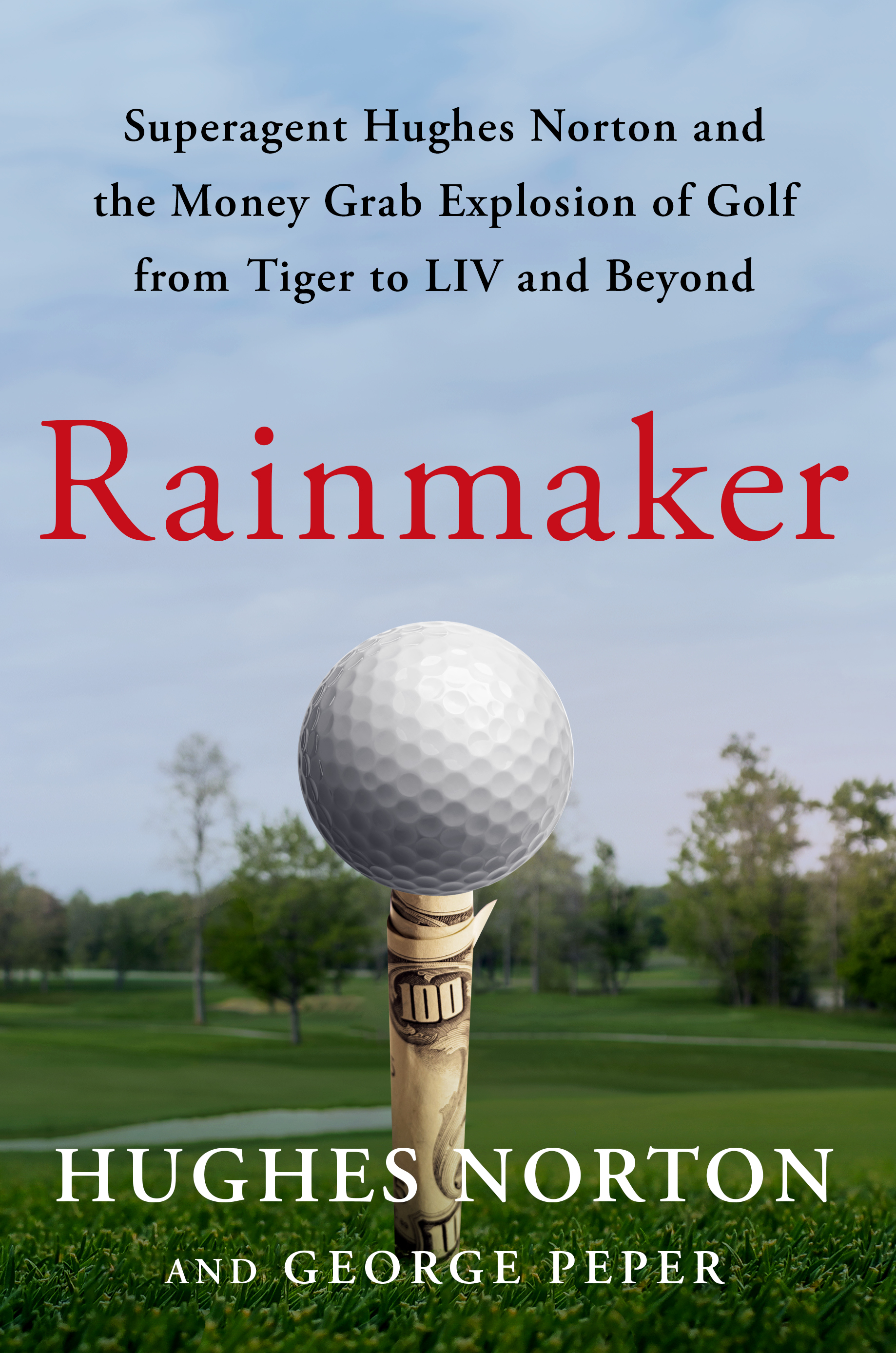
IH: Do you see a solution?
HN: Golf has to be careful here, but I think the Saudi circuit and the PGA Tour have to come to Jesus and get together. You want as many stars visible as often as possible for golf to thrive. We’re not getting that right now. This is why I think Jay Monahan and the Tour made their huge mistake initially, which was to tell Saudi Arabia to go to hell. They should have accepted when they wanted invest in the Tour when that’s all they wanted to do. They didn’t have a rival tour in mind. Now, LIV is going nowhere. They’re not subject to the normal constraints of starting a new business because money is meaningless to them. They’ve spent $5 billion on this already. The private investment fund of Saudi Arabia currently has $700 billion in it. How long can they continue? I think about 400 years.
IH: And it certainly seems Norman has no intention of giving up. Was he your most competitive client?
HN: No. It was Tiger, for sure. He lived to compete. That was all that mattered. Norman loved to compete as well. You don’t get there without having that attribute. Greg loved the outside income, the lifestyle, the private jets, the yachts, the big homes and seven Ferraris in the garage. He just loved the money, and good on him. Why not? You work hard, you earned it. With Tiger, the money and the outside stuff was literally an intrusion into his life. It sounds crazy. Your agent got you $60 million guaranteed the day you turn pro and that doesn’t matter to you? To him, it really didn’t. He was set up for life and would never have a financial worry. His life was golf. He’d sleep five or six hours, go work out, come back to eat and go out and practice golf all day long,. Then he’d come back and maybe do a second workout in the gym. Eat, sit on the couch and watch ESPN then go to bed. Rinse, repeat. It’s all that mattered. From the time he was little he wanted to be the greatest in the game. For Tiger, the money was incidental. For Greg, it was always front and center, but both were championship golfers.
IH: Do you think Tiger, who’s going to turn 49 this year, can win another major?
HN: I wouldn’t put anything past him. I learned that a long time ago. That’s how his dad raised him. He would tell him all the time when he was 10 years old, “Tiger, you’re no good. You can’t win and next week you’re playing against 12-year-olds. You’ve got no chance.” It just firmed up his resolve. He’d say, “I’m gonna show you.” He’s had that ever since. To motivate Tiger Woods, just tell him it’s all over with. “You’re hurt. You’re a shadow of your former self.” He proved us wrong five years ago at the Masters, didn’t he?
Whether you’re looking to get into shape, or just get out of a funk, The Charge has got you covered. Sign up for our new wellness newsletter today.
